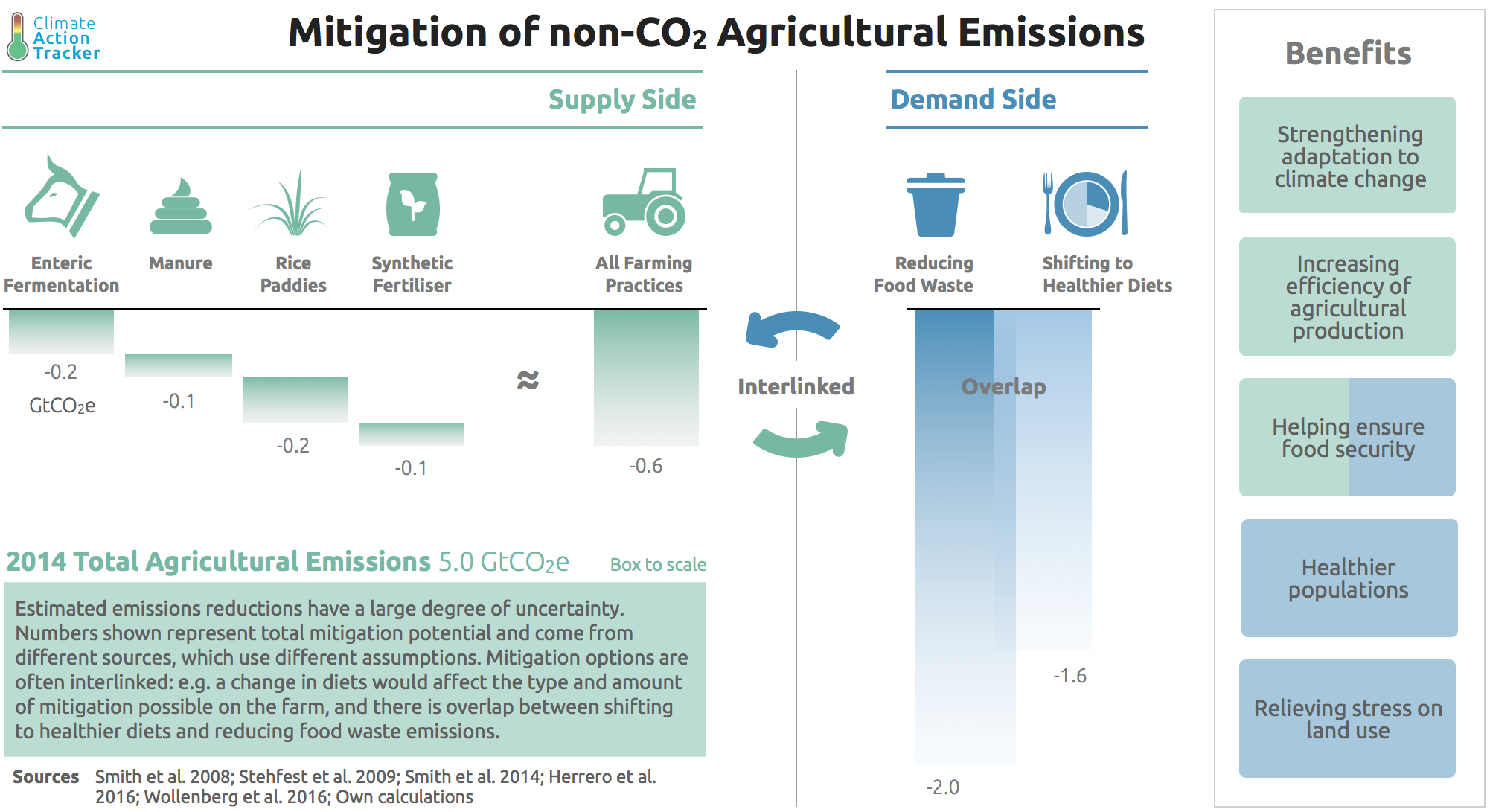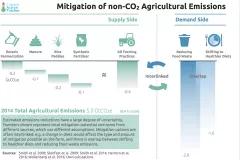A new analysis of agricultural emissions by the Climate Action Tracker shows that reducing emissions through changes in farming practices alone will not be enough to limit global warming to 1.5°C, but changing our diets and reducing food waste could make significant additional reductions, which calls for a much more holistic approach.
Key messages :
- Mitigating emissions from agriculture is key to achieve deep cuts in emissions in line with the Paris Agreement’s long- term goal of “net-zero”
- Options for emission reductions on the supply side include efficiency improvements, take-up of best practices and innovative approaches in
- Mitigation opportunities on the demand side are equally important—e.g. in transport, storage and consumption of food—and this is where consumer behaviour plays a major
- Changes in consumer behaviour, resulting in substantial benefits for public health, hold large potential for deep reductions in agricultural non-CO2emissions while ensuring the growing demand for food worldwide can be met.





